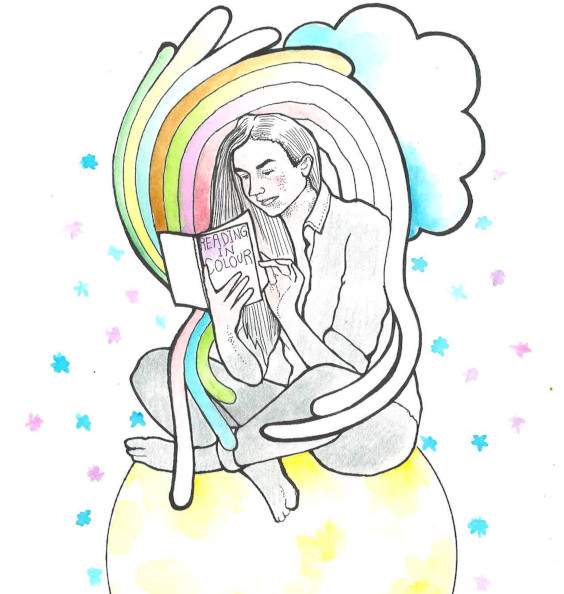I’ll be your trusted learning partner
Reading in Colour

Gabrielle Funk
With the environmental nightmares of the summer months coupled with a year-and-a-half-long pandemic, it’s as if we are stuck in the apocalypse. The remains of Indigenous peoples are being found at several residential school sites, the situation in Afghanistan continues to worsen, and, of course, we’re still in the thick of the COVID-19 pandemic. Shouldn’t we be coming out on the other side by now?
If we reach further back into our memories, we might recall Brian Sinclair’s death in September 2008 at the Health Sciences Centre, resulting from racist and stereotypical assumptions made by hospital staff.
Now, fast-forward to May 2020, when George Floyd was brutally killed by a police officer in the light of day. These tragic events came as a shock to many, resulting in a general desire to be better. Many Canadians are now working on becoming more aware of their privilege and acting to reduce unconscious biases that fuel systemic racism and various other discriminations toward disabled people, 2SLGBTQ+ communities and religious groups.
One important way to build empathy, understanding and awareness of issues that marginalized groups face is by increasing the diversity of our bookshelves. Recently, the demand for diverse representation and characters has been growing, but the problem of knowing how to engage meaningfully with difficult content in person and online can be challenging.
A common comment I see, particularly on social media, is a variation of “don’t ask me, Google it.” People are doubly burdened by experiencing marginalization and oppression, and then being expected to explain their suffering. We are tired of teaching others how they are hurting us, and this is completely valid.
Think of it this way: when you want to become an electrician, you enroll in the appropriate program, take the time to study and meet all the requirements to receive certification. You make an effort. You act. To succeed, you must have a desire to learn. You must put in the necessary time, actively studying and practising to acquire knowledge. The same is true for unlearning biases and becoming better allies. Meaningful understanding and awareness of social issues does not come simply by swiping through Instagram stories. It’s intentional, and it takes time.
Elif Shafak, a British-Turkish novelist, differentiates between information, knowledge and wisdom on her YouTube Channel Say Your Word. In a video titled “Information: When was the Last Time You Said I Don’t Know,” she explains that, living in the digital age, we have access to such an excess of information that we acquire little knowledge and even less wisdom.
“Knowledge cannot be rushed,” she claims, adding that staying with material longer is crucial for developing knowledge. Shafak argues that scrolling through social media isn’t enough, because we’re typically only spending a few seconds on every post we come across. She believes the constant swiping on our screens leads to mind “fatigue” and “numbness,” rather than enabling us to build knowledge.
Although marginalized people should not be expected to provide free education to their more privileged friends, sending people away to social media or to “Google it” is unlikely to change much. People need to be encouraged to consume meaningful content, to stay with it and to really engage with the material. This is where I come in.
As I read and learn, I would like to volunteer myself as your guide. I want to be your trusted learning partner, as we venture through this wilderness of information in earnest. Let’s break the habit of only reading authors with names we can pronounce and explore literature from all walks of life.
I want you to truly see me, to truly see marginalized groups, and for us to truly see you. I am confident that if we are intentional learners and honest in our quest, we will become a stronger, more empathetic community, even as we trudge on through what feels like an ongoing apocalypse.
Valerie Chelangat is a Kenyan-Canadian columnist and a bookseller for marginalized voices. She is a Master of Fine Arts in Creative Writing student.
Published in Volume 76, Number 1 of The Uniter (September 9, 2021)







